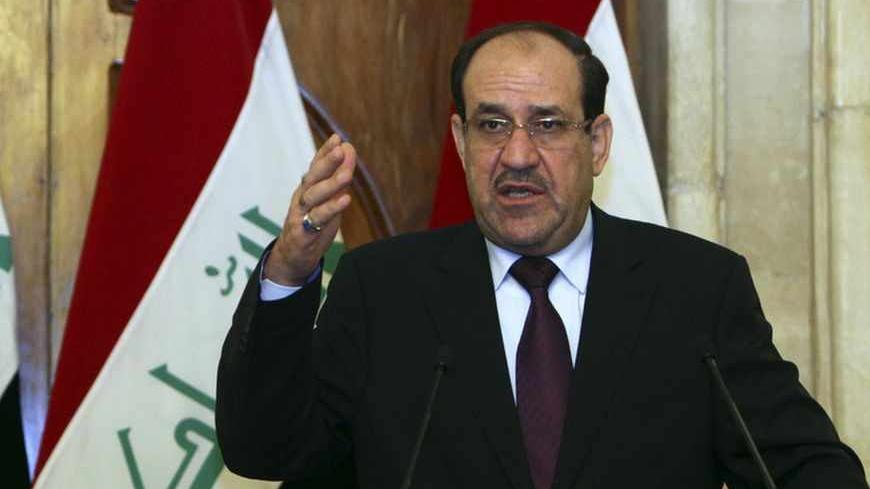On Aug. 26, the Iraqi judiciary resolved a six-month controversy concerning a law passed to limit the terms of the president, prime minister and parliament speaker in an attempt to prevent current Prime Minister Nouri al-Maliki from running for another term. The Federal Supreme Court, the body authorized to interpret the constitution, declared the law unconstitutional, landing a severe blow to Maliki's opponents, who had failed in June to round up enough votes for a parliamentary vote of no confidence.
Although the controversial law targeted the speaker and president as well, the law was clearly aimed at the prime minister. Passed in January, it stipulated that “for the purposes of the implementation of the law's provisions, a full term is one that ends upon exemption, resignation, withdrawal of confidence or upon the dissolution of parliament.” The text clearly showed that Maliki's opponents had personalized it, which prompted its referral to the Federal Supreme Court a few days after it was passed.



